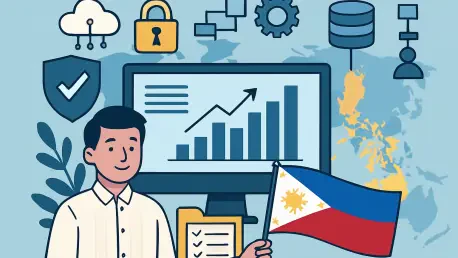In an era where digital transformation shapes economies and societies, the Philippines finds itself at a critical juncture, grappling with significant shortcomings in how data is managed and protected, which could hinder national progress if left unaddressed. Data, often dubbed the new oil, drives decision-making across public and private sectors, yet a regional study known as the “D4DAsia Synthesis Report” reveals alarming gaps in the country’s approach to data governance. Conducted by a coalition of research and advocacy groups, this comprehensive analysis compares the Philippines with six other nations, highlighting a pressing need for reform to ensure transparency, safeguard individual rights, and promote inclusive development. The stakes are high, as ineffective data management not only risks privacy breaches but also stifles innovation and equitable growth. This urgent scenario sets the stage for a deeper exploration into why robust frameworks are essential for the nation’s future in a data-driven world.
Addressing Critical Policy Gaps
One of the most glaring issues in the Philippines’ data governance landscape is the limited accessibility to government data, despite constitutional guarantees of the right to information on public matters. The lack of seamless coordination between platforms like the Open Data Portal and other key databases, such as the Philippine Statistics Authority’s OpenStat, creates significant barriers to efficient data sharing among agencies and the public. Furthermore, there is a notable absence of a cohesive government policy on open software and standards, leaving agencies to navigate vague principles rather than rely on standardized guidelines for system connectivity, data integration, and e-services access. This fragmented approach undermines the potential for data to be a transformative tool in policy-making and public service delivery. Experts argue that without clear, enforceable frameworks, the nation risks falling further behind regional peers who have prioritized structured data ecosystems, emphasizing the urgency for legislative and technical reforms to close these foundational gaps.
Navigating Emerging Technological Challenges
Beyond basic policy shortcomings, the Philippines faces daunting challenges in adapting to rapidly evolving technologies, particularly in areas like artificial intelligence (AI) and data localization. Current laws do not adequately address the implications of AI, especially in fields like copyright, where existing regulations recognize only human-created works, leaving AI-generated content in a legal gray area. Similarly, the absence of a defined policy on data localization—critical for managing data storage and cross-border flows—poses risks to data security and national sovereignty. These gaps reflect a broader lag in updating legal frameworks to match technological advancements, potentially exposing citizens to privacy violations and hampering innovation. The “D4DAsia Synthesis Report” underscored that such deficiencies have placed the nation at a disadvantage compared to neighbors with more forward-thinking strategies. Reflecting on past efforts, it becomes evident that immediate action through legislative updates and policy interventions is necessary to safeguard rights and harness technology for inclusive growth.









